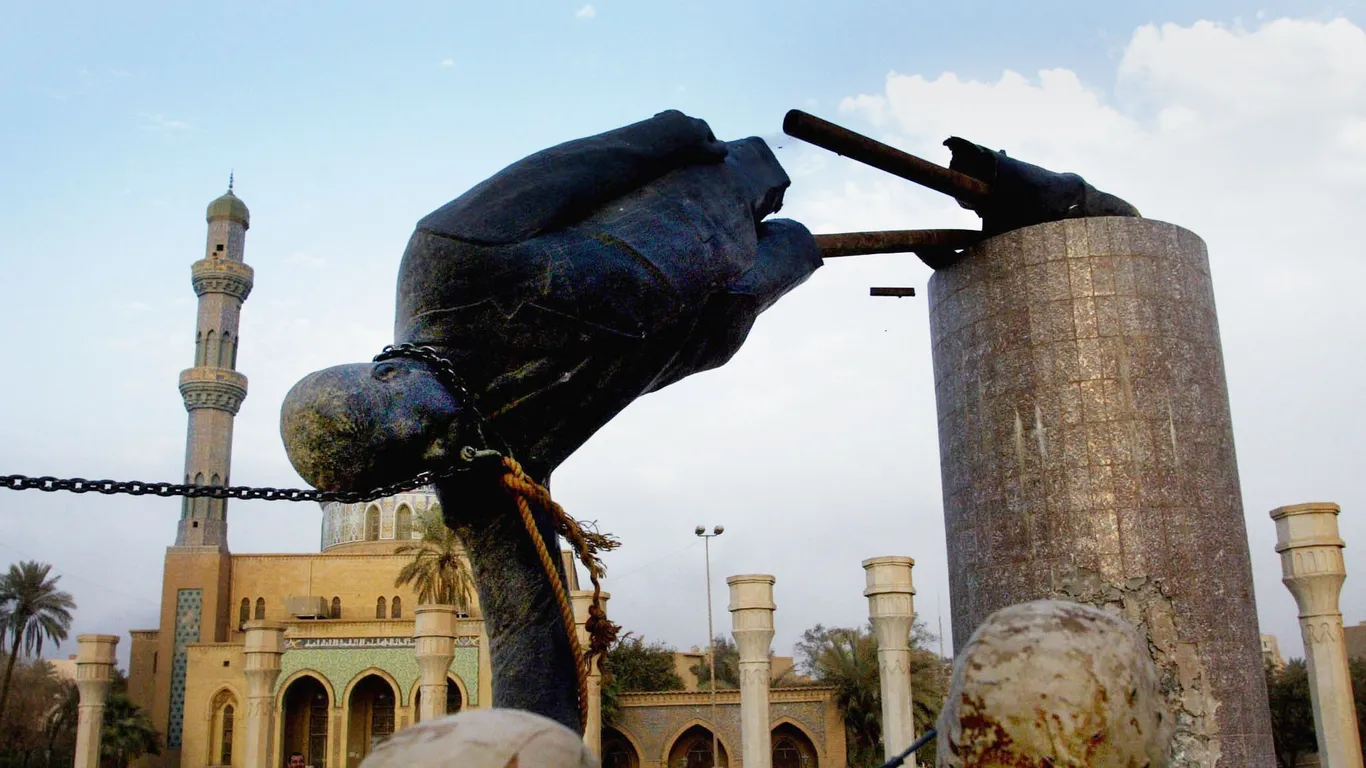Iraq’s politics are chaotic and corrupt 20 years after U.S. invasion

Two decades after the U.S. launched Operation Iraqi Freedom, Iraq is “not free,” at least according to the latest Freedom House analysis.
The big picture: The U.S.-led invasion that began 20 years ago this week and swiftly toppled one of the world’s most repressive regimes did not, as its architects in the George W. Bush administration hoped, herald a new dawn for democracy in the region.
Rather than the anniversary, most Iraqis are focused on “the frustrations of current reality: the kleptocracy, the lack of services,” says Omar Al-Nidawi, director of programs at the Enabling Peace in Iraq Center.
The invasion elevated a new class of politicians, many of them exiles who returned to vie for power and continue to do so today, Al-Nidawi says.
“They got their foot in the door, they acquired resources, they acquired positions. So when the country transitioned to a democratic system, they had an advantage,” he says. Patronage networks, state resources and militias helped entrench their power.
State of play: Corruption and sectarianism have been endemic to Iraqi politics since the invasion, with Shiite, Sunni and Kurdish parties divvying up the top jobs and government ministries, and using their share of the budget to enrich themselves and employ their supporters, says Jonathan Lord, director of the Middle East security program at CNAS.
That budget is almost entirely funded by oil. “There is almost no private sector economy to speak of in Iraq,” Lord says.
Around half of Iraq’s population was born after the invasion. But young Iraqis unable to secure a job in the government or oil industry have few options for work.
A Gallup index of global sentiment ranks Iraq as the third most unhappy country, behind only Afghanistan and Lebanon.
Flashback: U.S. troops withdrew after eight years of war — in which an estimated 200,000 Iraqis died along with nearly 5,000 U.S. troops — but returned in 2014 to help confront the rise of ISIS. Around 2,500 U.S. troops remain in the country to help prevent a resurgence.
They also keep an eye on Iran, which grew increasingly powerful inside Iraq as Saddam fell and the U.S. withdrew. Powerful militias inside Iraq have links to both Tehran and to political parties in Baghdad.
Yes, but: Even by surviving this long, Iraq has defied many expectations, notes the International Crisis Group’s Joost Hiltermann.
“Iraqi society came to enjoy a modicum of freedom. The country has a multiparty system for the first time in its history, repeated and relatively fair parliamentary elections, and a free (but easily intimidated) press.”
But plunging voter turnout and waves of protest, often driven by a lack of basic services like reliable electricity, underscore the disillusionment with the current system.
The latest: Current Prime Minister Mohammed Shia al-Sudani took office in October 2022 following a long and volatile post-election power struggle. Sudani was backed by a bloc of pro-Iran parties, but he has tried to dispel claims he’s loyal to Tehran and referred to the U.S. this week as a “strategic partner.”
In addition to balancing the outside powers, he’s trying to quickly demonstrate progress at home, particularly in the power supply, Lord says. “He understands that he doesn’t have long before he’s going to be facing protesters in the streets again.”







